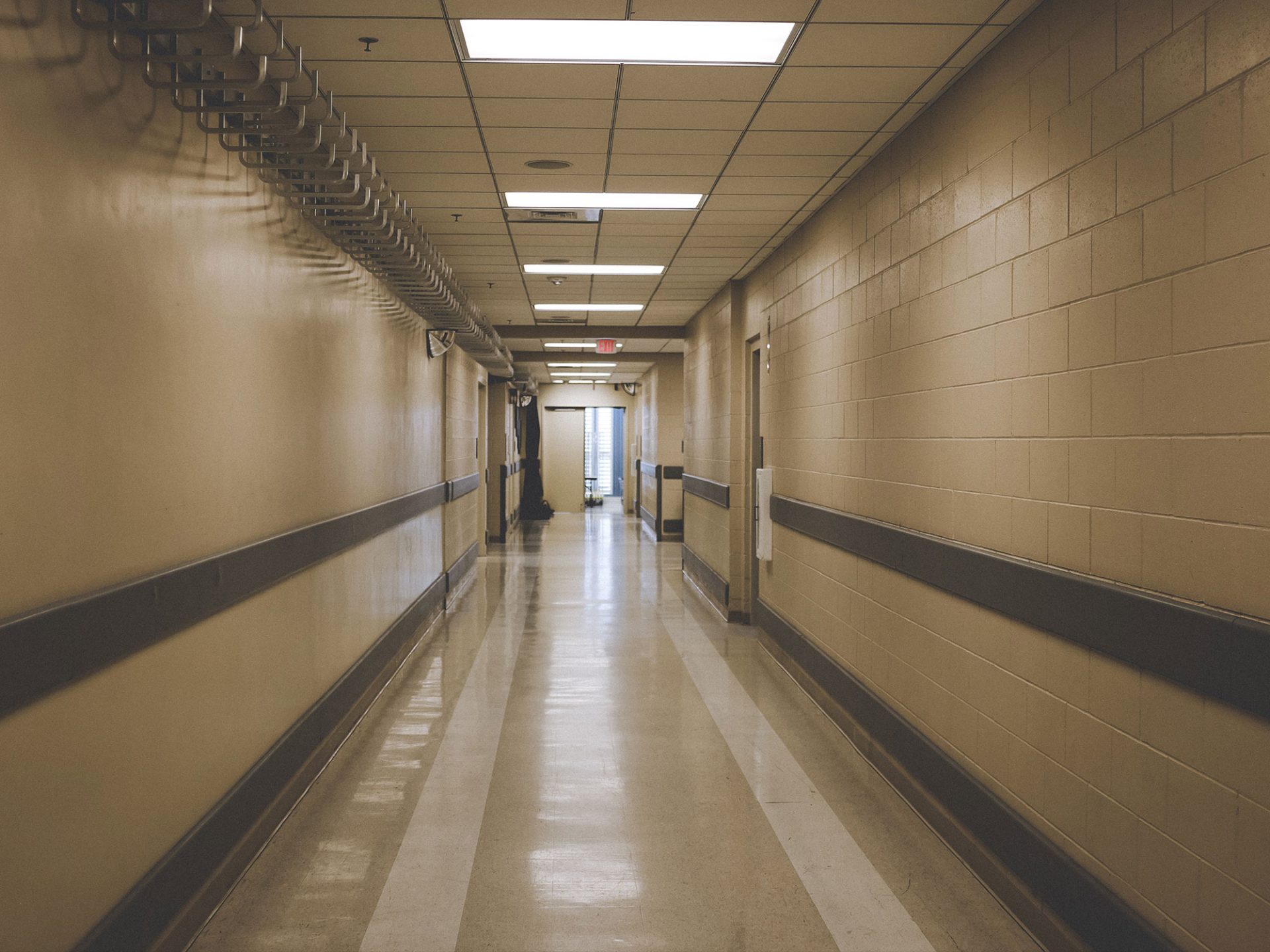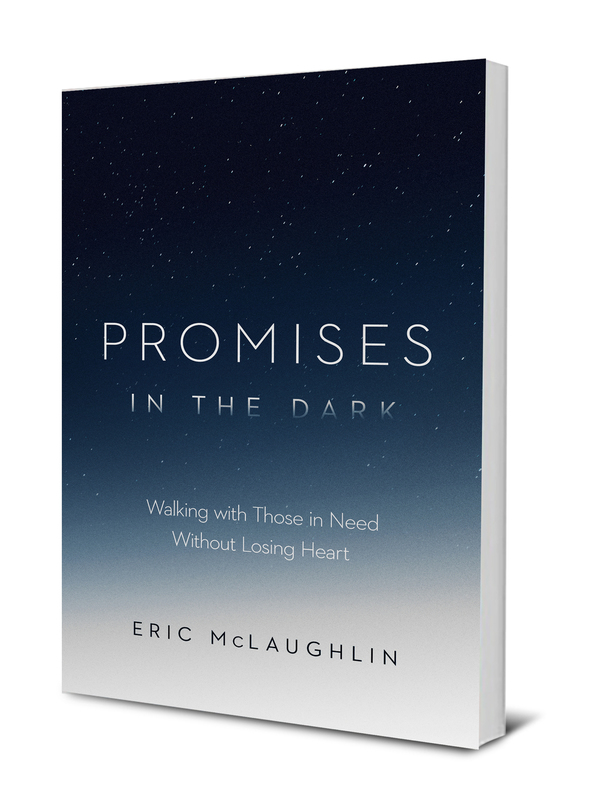When I talk with people about my work, one of the most common responses is to remember the comfort found in knowing I did everything I could do. I agree there is real comfort in that thought. I owe this competency to all of my patients. Wherever we enter into such critical needs, we owe that competency. But what do we do when that also fails?
I remember Mercy. Five months after my first call weekend, I’m less of a novice and starting to find a certain rhythm in hospital life. Visitors now come and ask me where the bathroom is, and I can successfully direct them. The grim realities of the hospital seem a little less piercing, and I’m trying to remember that no one can ask me to do the impossible. I can only do what is possible in my circumstances.
Mercy’s Story
Now I’m taking care of adults in the hospital. Mercy is thirty-five years old. She has at least two little kids. I have seen them around visiting their mom, but odds are good she has more children at home.
Mercy comes in with trouble breathing, and a chest X-ray shows her heart is huge. The hospital staff and I decide she has heart failure and start giving her medicine to get the fluid out of her lungs. But, she just isn’t doing well. Something doesn’t seem to fit. Then, after a couple weeks of floundering, Mercy’s left leg swells up.
That changes everything. If a leg is swollen from a big blood clot, then the trouble breathing is probably due to bits of that clot breaking off and lodging in the lung’s blood vessels. Now it seems that, even if Mercy’s heart is bad, it isn’t the cause of her problem, and our treatment isn’t going to help her.
Mercy tells me she had this kind of problem before, a couple years ago. She didn’t think it was important enough to tell me when she came in, and I didn’t ask.
We hurry to start her on the appropriate treatment. Three days later, she gets up to walk to the bathroom, collapses, and dies. Maybe if we had started treatment sooner for her blood clot, she would have lived. Maybe not. But maybe.
It’s hard. She was young. She left at least two little kids motherless. She spoke to me each day in English, and she felt like a sort of friend. Now, Mercy is gone, and maybe if she had a better doctor, if I had been a better doctor, she would still be here. There is a comfort in knowing you did everything that anyone could have done. This is true. But I am not at all sure that’s the case for Mercy and me. I want it to be true, and I tried to make it true. I’m just not sure.
I know God hasn’t called me to get it right every time. He has called me to get up again for another day and do the best I can with the gifts he has given me. This also is true, and this also is a comfort. But in the face of all my weakness, sometimes it feels like a pretty small one.
My Grace is Sufficient for You
Insufficiency is a heavy weight. How can we bear it? In a letter to a young church, Paul writes about a strange vision where he has a thorn in his flesh and he begs God repeatedly to remove it. God refuses to do so, and then, by way of either justification or comfort, God makes a remarkable statement:
“My grace is sufficient for you, for my power is made perfect in weakness.”
2 Corinthians 12:9a (ESV)
For a long time, I thought that statement meant God would find a way to work his will through us despite our weaknesses. I thought we could take comfort in our weaknesses from knowing God would not be hindered by them. If this were true, then I would expect Paul’s reply to God’s words to be, “Okay, but if you take out the thorn, it could be even better!” Paul doesn’t say that, because he apparently understood the point better than I. “My power is made perfect in weakness.” It is precisely in our weaknesses and not in spite of them that God’s power is made perfect. Thus, God decides to leave the thorn, since it is creating weakness and therefore perfecting his power. In my initial interpretation, God is like a manager, helping us along the way, ensuring our weaknesses aren’t stopping us from accomplishing something. In the second interpretation, it’s God who must act because our weakness shows we can’t.
God’s Power Made Perfect in Weakness
How is God’s strength made perfect in weakness? Sometimes I catch a glimpse of it happening, or maybe I could make a guess. However, most of the time, and especially in cases like Mercy’s, I honestly don’t know. It’s a promise, and admittedly we must trust to hold on to it.
There is good reason to trust, however. When Paul said God’s power was made perfect in weakness, he was speaking the words of a particular vision but also a truth which he had seen and lived. Paul was often insufficient for the task. He didn’t have enough wisdom, enough polished arguments, or enough favor with people. He was beaten, stoned, shipwrecked, and imprisoned. We don’t have to read very much of the rest of the Corinthian letters to see the failings of the churches he planted. Paul’s entire life was shot through with weakness, but the kingdom of God was going forth nevertheless.
This may seem surprising, but we must at least admit that it bears a certain resemblance to the life of Jesus that the church was trying to follow. From a purely human standpoint, Jesus didn’t look like a fortress of strength. His teachings were misunderstood, and his closest disciples so often seemed clueless. Then the powers of the day rose against him and killed him. Through it all, there is weakness. Then God acts. There is resurrection and miracle. Something new comes that could not have come but for the power of God. Thus, Jesus is glorified.
It’s a Mystery
Yet we hold out this tattered world and our tattered attempts to make it better, and we say “God, how can this be the means by which your strength will be made perfect?” It is a consistent biblical phenomenon, yet, it is still a mystery. I don’t understand, but I am slowly beginning to think that my lack of understanding is part of the point. Because when I don’t know what to do, what happens? I am forced to wait—just wait on God and trust him to do something. The bald fact that I cannot solve or even improve the situation is staring me in the face. It is alternately humbling and humiliating. This is an antidote to my pride, and though I am loathe to admit it, I know my pride is a poison in everything I do—to my family, work, patients, and to my own heart. This antidote has been so elusive, my pride so stubborn and in an unlikely struggle, my pride falters, and new life starts to arrive. Thus we start to suspect that God is once again surprising us.
When God must act because I am weak and cannot act myself, everyone can see that. No one is going to praise me. They will praise God, and this is a good thing. Contrary to what I often feel, the crumbling of my plans is not the crumbling of God’s plans. In fact, the crumbling of my shoddy and moth-eaten plans may well be the construction of God’s plans, beautiful and strong in the way that I never could have imagined. This was true for Jesus and for Paul and for the birth of the church.
“Therefore I will boast all the more gladly of my weaknesses, so that the power of Christ may rest on me.”
2 Corinthians 12:9b (ESV)
Certainly, I can at least admit when I don’t know, or when I make a mistake, and this is bound to lead to better care for my patients.
This changes everything for us in our insufficiency. Over the past several years, I have come to believe that we must either be serious about God being glorified in our weakness or we should just stay home because we’re not going to bring anything else to the table. We can dress up our skills. We can train for decades. We can try and style the circumstances to capitalize on our strengths. Those aren’t bad things, but they don’t erase the inescapable truth that we are and will always be insufficient to the task in front of us. The needs around us will always outstrip us. We will always be utterly reliant on the action of God in our relationships, in our work, and in the world. In this we follow the way of Jesus.
So what will we do? We can hide from it. We can pretend it’s not the case or, if it is, it’s not a big enough deal to change the way we live. Denial is often a default mode. The alternative is we can own our weakness. We can fearlessly and transparently talk about all we cannot do—all the ways in which we are simply relying on God to do something that will, in the end, make all the difference. We can look to him who brings life from the dead and light from the darkness.
God’s power made perfect in our weakness. It’s truth for us. It’s freedom for us. And it’s a promise to us.
Excerpted from Promises in the Dark © 2019 by Eric McLaughlin. May not be reproduced without prior written permission.
PROMISES IN THE DARK: WALKING WITH THOSE IN NEED WITHOUT LOSING HEART
Promises in the Dark by Dr. Eric McLaughlin strengthens the hearts of readers to persevere in God’s calling to walk with those in need. As a missionary doctor in Africa, McLaughlin knows how walking closely with those who suffer and bearing others’ burdens can easily lead to burnout or cynicism—unless we find the path to perseverance that the Lord provides.






